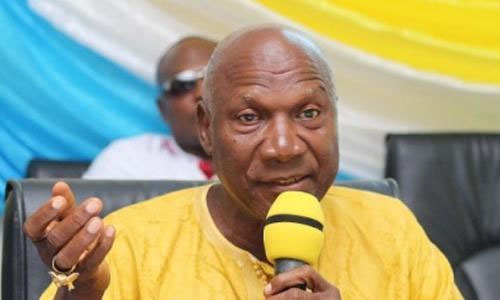I have found it. I have found a Cure for our slow pace of development. It is simple. Let us develop an implementable asset tracking system. Then let us have a code for development no government can side-track. If a government is caught dodging the development agenda, sanctions shall be invoked against the individuals in that government who violate the code.
The idea hit me while I was lying on the bed last night. Strangely, by the time I woke up, the thought had vanished. But like any good thing that ought to materialise to develop the motherland, lo and behold, it resurfaced sometime around mid-morning.
Regarding asset tracking, I have written so much about it, rubbishing the Assets Declaration article in the Constitution as useless and enabling rather than disenabling corruption on a large scale. That’s so because those completing the forms know there’ll be no consequences for false declarations. We would need to formulate a code of development the President and his Ministers would have to swear to follow. Both the asset tracking and the code would have to be enacted into law for compliance.
Among the ceremonies of the presidential inauguration would be the President, first thing after being sworn in, handing the government’s programme to the head of the NDPC who would immediately set in motion a monitoring and documentation of government actions and activities in compliance with the development code. By that time, the NDPC would have audited and compiled the state of infrastructure and loans contracted and hand over that to the President.
The President would immediately, within three months of assuming office, refine a maintenance plan, which the outgoing government would have been made by law to prepare as part of its handing over notes. The new government’s maintenance plan would be handed over to the NDPC for monitoring. The NDPC would draw the attention of government to any omissions in the maintenance plan it would submit.
Essentially, the code of development would require a government to always start ONLY what it can finish. Then leave what it met in better, and never worse, condition. A government would not be allowed to leave what it met in a state of disrepair. Its members concerned would be made by law to serve punishment for noncompliance.
The law would compel road and other maintenance. Each project would have definite repair time; and contract signee and contractor should be held responsible for lapses. We may want to revisit the Hammurabi law of breaking down a builder’s building should what he built for another break.
A code of development should be the code our governments should be compelled to follow. That is, if we ever want to see development in the medium term. With a law of that nature in force, we would never have been saddled with an uncompleted Kufuor gang of four and pedestrian death matters that arose out of that.
E-schools would not have stirred controversy because what happened to the loan contracted to build them would have been clear for all who care to see. And the seemingly senseless Saglemi would have been made to make sense. Same would have applied to the Komenda Sugar factory debacle.
A government that sits by and watch disrepair and deterioration as they look round for something new that will attract commission, would have to pay for its maintenance omission. It’s unacceptable to look ahead to rail and road projects that fail after heavy spending. Government stuck 1 million dollars per constituency projects must cease.
It would make no sense to argue a development code would tie hands. It would not tie anybody’s hands. Rather, would encourage being focused and keeping away from frivolities.
And I think, whatever the mandate of the National Development Planning Commission (NDPC) is, its mandate must be rewritten to reflect this thinking requiring a government that is exiting to furnish it with 1) what it met, 2) what it added; 3) maintenance plan for the year ahead. The Commission would then audit and make additions and subtractions for a report ready for the incoming government.
Occupy Ghana and its allies may want to apply themselves to finding ways, not including submitting a bill on asset tracking and development code to Parliament for enactment. The group might then want to support the NDPC to implement the law by NDPC following up to compile what a government has achieved (instead of leaving it for a Green Book or any partisan propaganda compilation.
NDPC would indicate: 1) what may have deteriorated 2) what has been fixed, and 3) develop next steps indicators that it would use to measure the performance of an incoming government. Like the Living Standards Survey, NDPC would take immediate steps to catalogue what exists. It would be updating as more projects/facilities are added to be able to state categorically what would be existing at the end of government’s term. We have heard outgoing governments say money had been already acquired for projects which never see the light of day.
What a motherland Ghana that seeks development and hopes to develop needs is a red, gold and green with black star book of what exists as compiled by the NDPC. Political parties would then be compelled to tailor their manifestoes to reflect the course the NDPC sees as the way forward. NDPC people, who are of substance, would put their reputation and credibility on the line, to do right for the motherland.
Let no one think the code would obstruct continuity. It would, rather, facilitate it.
By Kwasi Ansu-Kyeremeh


